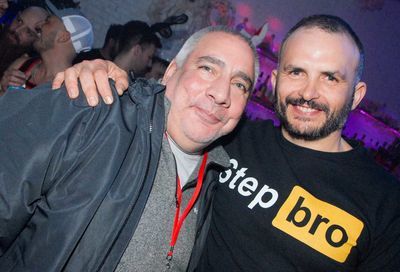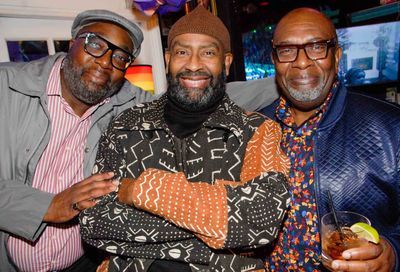We Fight On
Despite a dim future for gay issues in Congress, we must summon unceasing resolve
With all due respect to Log Cabin Republicans, who welcomed the new House majority last week, getting pro-gay legislation out of soon-to-be Speaker John Boehner and crew is about as likely as getting a fair price from a professional swindler.
Republicans, benefiting from a recession of their own making, claim their election victory as a mandate for repealing Democratic reforms. While gays were passed over as scapegoats in this election in favor of immigrants and Muslims, the incoming Republican leaders have perfect zeroes on their scorecards from the Human Rights Campaign. If you think pro-gay legislation was scarce in the 111th Congress, wait until the 112th.
Kentucky Senator-elect Rand Paul’s libertarian opposition to civil rights laws may be nothing personal, but that is cold comfort. The greater threat, however, is from so-called experts who profess to tell us ”what the American people want.” A prime example is Republican pollster Frank Luntz, who declares in the Nov. 7 Washington Post that voters’ main complaint against Washington is that ”government has grown too big, too inefficient, and too out of control.”
Luntz’s polling puts words into voters’ mouths, like reporters with a pre-written story who call me for a quote, asking, ”Would you say such-and-such?” They don’t really want my opinion, they want permission to attribute their opinion to me. If you scare people with lies, it is hardly surprising that they will reflect them back.
By such manipulation, Luntz reveals that voters want a constitutional amendment to balance the budget; an end to earmarks; a supermajority requirement for raising taxes; a change to a simple, flat tax rate; and ”a 21 percent across-the-board cut in nonmilitary discretionary spending, even if it means reductions in education and health programs.”
I too oppose earmarks, but that form of pork is routinely used by incumbents of both parties precisely because it is popular with their constituents. The flat tax is highly regressive, favoring the ultra-rich. Requiring supermajorities to raise taxes has helped cripple California, whose voters have entitled themselves to a long list of things without paying for them. The GOP wants to cripple government; but that will no more promote the general welfare than extending the Bush tax cuts for the wealthiest Americans will reduce the deficit or stimulate the economy.
The U.S. Senate already has a supermajority requirement in the form of nonstop Republican filibuster threats, which are employed not to advance the popular will but to thwart it. John McCain does not care that 80 percent of Americans favor ending ”Don’t Ask, Don’t Tell.” Ending the filibuster would do far more for reform and equality than the bludgeon of across-the-board spending cuts, from which staggeringly wasteful defense spending is exempted.
Where was Luntz’s concern for the will of the people after the 2008 election? The relentless Republican obstructionism from then until now has been fueled not by egalitarian sentiments but by a determination to help the privileged few by exploiting and inflaming the many. The Tea Party’s incoherence on the subject of government effectiveness was beautifully captured by the cry, ”Keep your government hands off my Medicare!”
When Luntz tells Democrats that their problem is ”not about … insufficient communication, but about their philosophy and substance,” he means they should be more like Republicans. We should sooner add belladonna berries to our fruit salad. As it happens (and fortunately for LGBT citizens), the House Progressive Caucus fared much better than the Blue Dogs.
What were lies a month ago are still lies, and they won’t be dispelled by conciliatory rhetoric. We have to fight back. Exposing the GOP’s radical agenda may hasten voters’ (including gay voters’) realization that creating change requires not impatience so much as unceasing resolve.
Richard J. Rosendall is a writer and activist. He can be reached at .
Support Metro Weekly’s Journalism
These are challenging times for news organizations. And yet it’s crucial we stay active and provide vital resources and information to both our local readers and the world. So won’t you please take a moment and consider supporting Metro Weekly with a membership? For as little as $5 a month, you can help ensure Metro Weekly magazine and MetroWeekly.com remain free, viable resources as we provide the best, most diverse, culturally-resonant LGBTQ coverage in both the D.C. region and around the world. Memberships come with exclusive perks and discounts, your own personal digital delivery of each week’s magazine (and an archive), access to our Member's Lounge when it launches this fall, and exclusive members-only items like Metro Weekly Membership Mugs and Tote Bags! Check out all our membership levels here and please join us today!





















